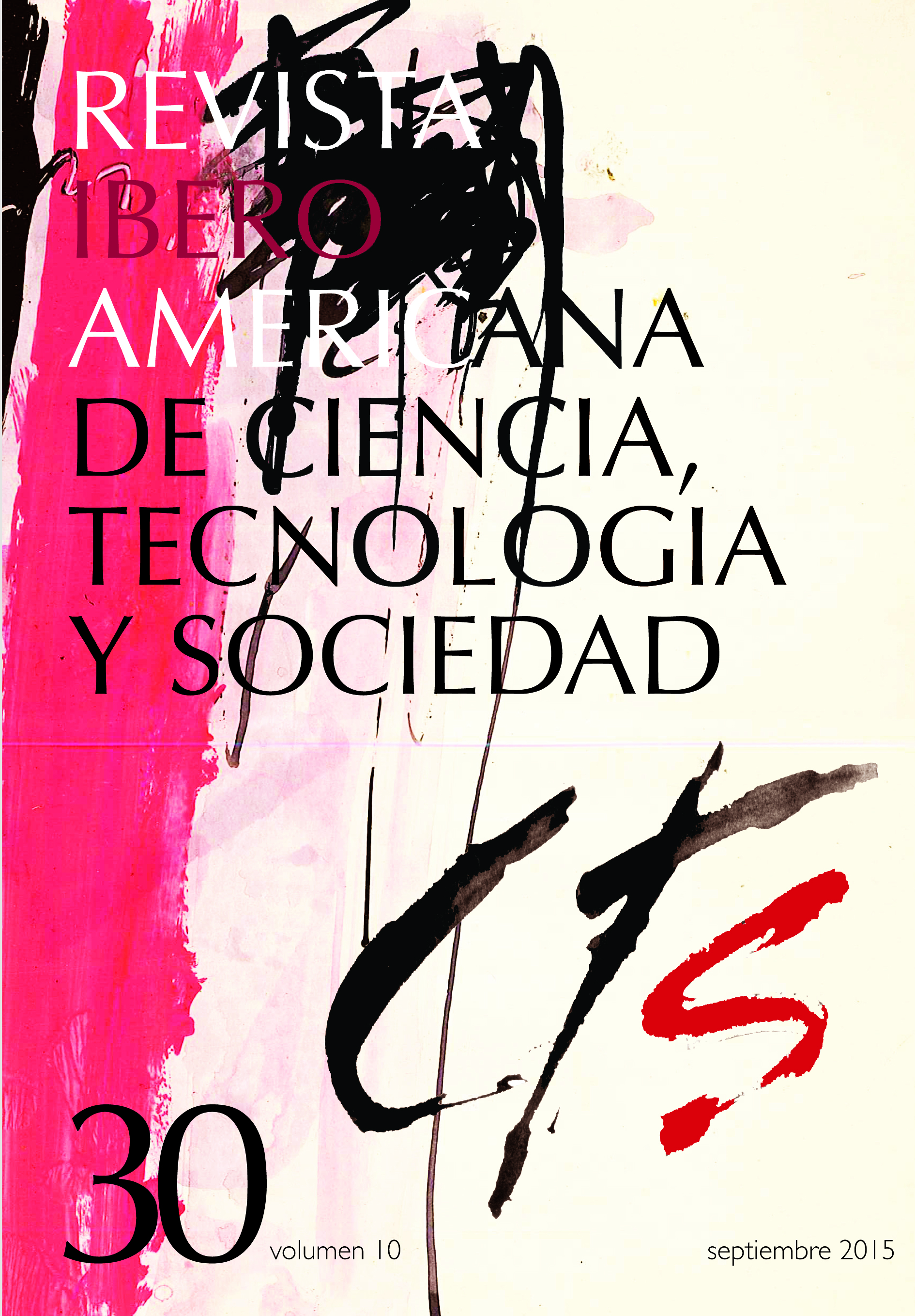The Technical Hope
Noise, Silence and Proliferation of Technical Texts in an Environmental Controversy
DOI:
https://doi.org/10.52712/issn.1850-0013-496Keywords:
Minas Conga, technical hope, political ecology, regulatory scienceAbstract
This is a documentary and descriptive study on the controversy around the environmental impact assessment (EIA) of the Minas Conga Project (Cajamarca, Peru). The purpose of the study is to better understand “the technical hope”: a widespread ideal that assumes that an expert forum brings silence to discussions where there is political noise. The paper discusses the political ecology approach applied to the analysis of mining conflicts and pollution risks, and proposes to enrich it with scientific studies devoted to the examination of socio-technical and regulatory scientific controversies. The main argument highlights the political weight of technical texts, the role of the experts and knowledge distribution. We conclude that the technical report/ counter- report proliferation, rather than bringing silence and certainty, multiplies the number of voices involved in the controversy, and makes the articulation between facts and values even more confusing.
Downloads
References
ARANA, M. (2009): “El caso del derrame de mercurio en Choropampa y los daños a la salud en la población rural expuesta”, Revista Peruana de Medicina Experimental y Salud Publica, vol. 26, nº 1, pp. 113-118,
BARNES, B. (1986): “On authority and its relationship on power”, en J. Law (ed.): Power, actions and belief. A new sociology of knowledge?, Londres, Routledge & Kegan Paul, pp.180-196
BEBBINGTON, A. (2007): “Elementos para una ecología política de los movimientos sociales y el desarrollo territorial en zonas mineras.”, en A. Bebbington (ed.): Minería, movimientos sociales y respuestas campesinas: una ecología política de transformaciones territoriales, Lima, IEP, CEPES, pp. 23-47,
BEBBINGTON, A.; BURY, J.; HUMPHREYS, D.; LINGÁN, J.; MUÑOZ, J. P. y SCURRAH, M. (2007): “Movimientos sociales, lazos transnacionales y desarrollo territorial rural en zonas de influencia minera: Cajamarca-Perú y Cotacachi-Ecuador”, en A. Bebbington (ed.): Minería, movimientos sociales y respuestas campesinas: una ecología política de transformaciones territoriales, Lima, IEP, CEPES, pp. 163-231.
BURRY, J. (2007): “Neoliberalismo, minería y cambios rurales en Cajamarca”, en A. Bebbington (ed.): Minería, movimientos sociales y respuestas campesinas: una ecología política de transformaciones territoriales, Lima, IEP, CEPES, pp. 47-81.
BECK, U. (1988): La sociedad del riesgo. Hacia una nueva modernidad, Barcelona, Paidós.
CALLON, M. (1999): “The role of lay people in the production and dissemination of scientific knowledge”, Science, Technology and Society, vol. 4, nº 81, pp. 81-94.
CALLON, M.; LASCOUMES, P. y BARTHE, Y. (2009): Acting in an uncertain world. An essay on technical democracy, Cambridge, MA, MIT Press.
DAMONTE, G. (2007): “Minería y política: la recreación de luchas campesinas en dos comunidades andinas”, en A. Bebbington (ed.): Minería, movimientos sociales y respuestas campesinas: una ecología política de transformaciones territoriales, Lima, IEP, CEPES, pp. 117-163.
ECHAVE, J. y DIEZ, A. (2013): Más allá de Conga, Lima, Creative Commons.
DEFENSORÍA DEL PUEBLO (2013): Reporte de Conflictos Sociales N° 107. Disponible en: www.defensoria.gob.pe/conflictos-sociales/.
DOMENECH, M. y TIRADO, F. (1998): Sociología simétrica. Ensayos sobre ciencia, tecnología y sociedad, Barcelona, Gedisa.
GIL, V. (2009): Aterrizaje Minero. Cultura, conflicto, negociaciones y lecciones para el desarrollo de la minería en Ancash, Perú, Lima, IEP.
INEI (2012): Perú. Principales indicadores departamentales 2007–2011, Lima, Diskcopy S.A.C.
JASANOFF, S. (1994): The fifth branch. Science advisers as policymakers, Londres, Harvard University Press.
JASANOFF, S. (1995): “Procedural choices in regulatory science”, Technology in Society, vol. 17, n° 3, pp. 279-293.
JOHNSON, S. (2010): La invención del aire. Un descubrimiento, un genio y su tiempo, Madrid, Turner.
KNORR, K. (2005): La farbicación del conocimiento. Un ensayo sobre el carácter constructivista y contextual de la ciencia, Bernal, Universidad Nacional de Quilmes.
LAFUENTE, A. (2011): Ciencia expandida, naturaleza común y saber profano, Bernal, Universidad Nacional de Quilmes.
LATOUR, B. y WOOLGAR, S. (1986): Laboratory Life. The construction of scientific facts, Princeton, New Jersey, Princeton University Press.
LATOUR, B. (1987): Science in action. How to follow scientist and engineers through society, Cambridge, Harvard University Press.
LATOUR, B. (2001): La esperanza de Pandora. Ensayos sobre la realidad de los estudios de la ciencia, Barcelona, Gedisa.
LATOUR, B. (2004): Politics of Nature. How to bring the sciences into democracy, Cambridge, Harvard University Press.
NUGENT, G. (1996): Composición sin título. Sobre democracia y diversidad cultural en el Perú, Lima, Fundación Friedrich Ebert.
OFICINA NACIONAL DE DIÁLOGO Y SOSTENIBILIDAD – ONDS (2013): Willaqniki N° 5. Mesas de diálogo, mesas de desarrollo y conflictos sociales en el Perú, Lima, PCM.
SHAPIN, S. y SCHAFFER, S. (2005): El leviathan y la bomba de vacío. Hobbes, Boyle y la vida experimental, Bernal, Universidad Nacional de Quilmes.
SENNETT, R. (2012): Juntos. Rituales, placeres y política de cooperación, Barcelona, Anagrama.
WHITEHEAD, A. (1968): El concepto de naturaleza, Madrid, Gredos.
YRIVARREN, J. (2012): “Ingeniería, autoridad y riesgo. La controversia del proyecto minero Conga en el Perú.”, Trabajo de Final de Máster, Instituto de Estudios de la Ciencia y Tecnología, Universidad de Salamanca.
YRIVARREN, J. (2013): “La comodidad sin ingenieros-sacerdotes. Elementos para una sensibilidad pragmatista de la ciencia y la tecnología.”, Revista de Sociología, vol. 18, n° 23, pp. 149-169.
Downloads
Published
How to Cite
Issue
Section
License
Copyright (c) 2023 CC Attribution 4.0

This work is licensed under a Creative Commons Attribution 4.0 International License.
All CTS's issues and academic articles are under a CC-BY license.
Since 2007, CTS has provided open and free access to all its contents, including the complete archive of its quarterly edition and the different products presented in its electronic platform. This decision is based on the belief that offering free access to published materials helps to build a greater and better exchange of knowledge.
In turn, for the quarterly edition, CTS allows institutional and thematic repositories, as well as personal web pages, to self-archive articles in their post-print or editorial version, immediately after the publication of the final version of each issue and under the condition that a link to the original source will be incorporated into the self-archive.











